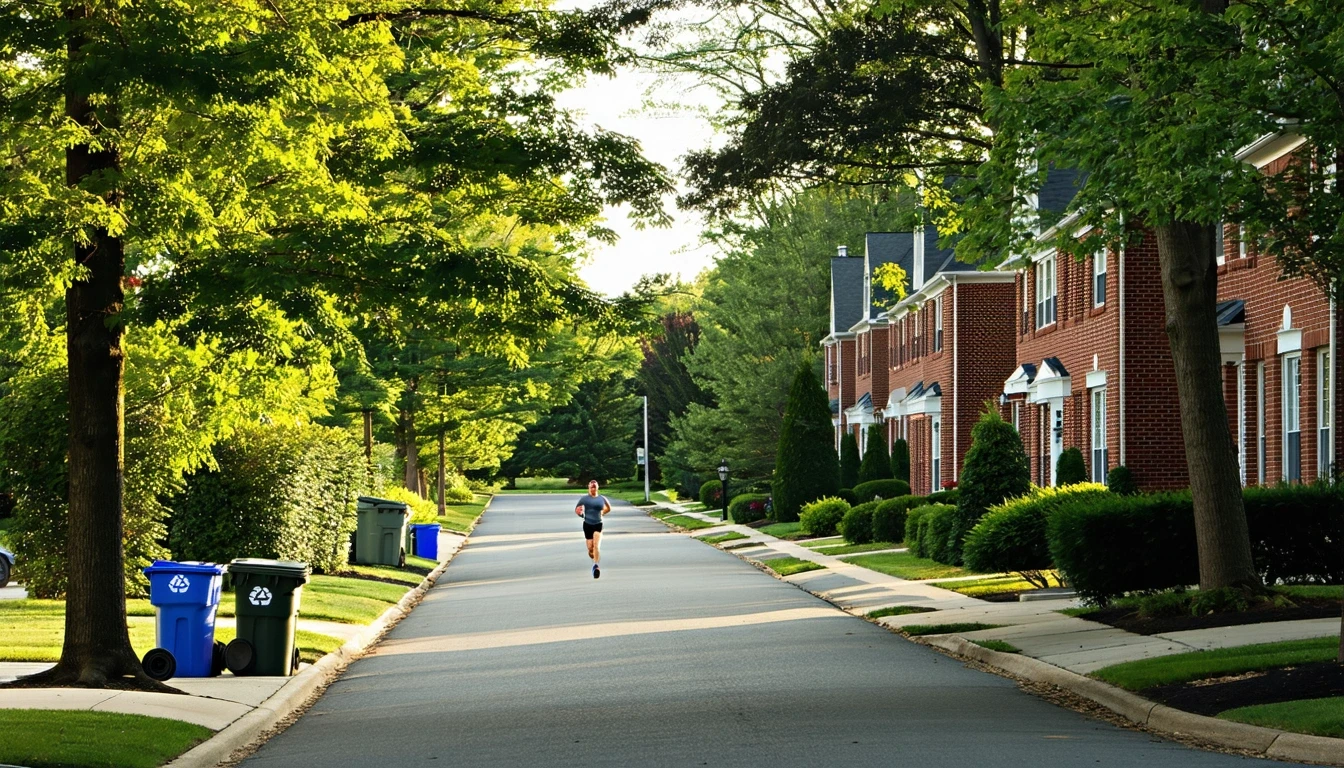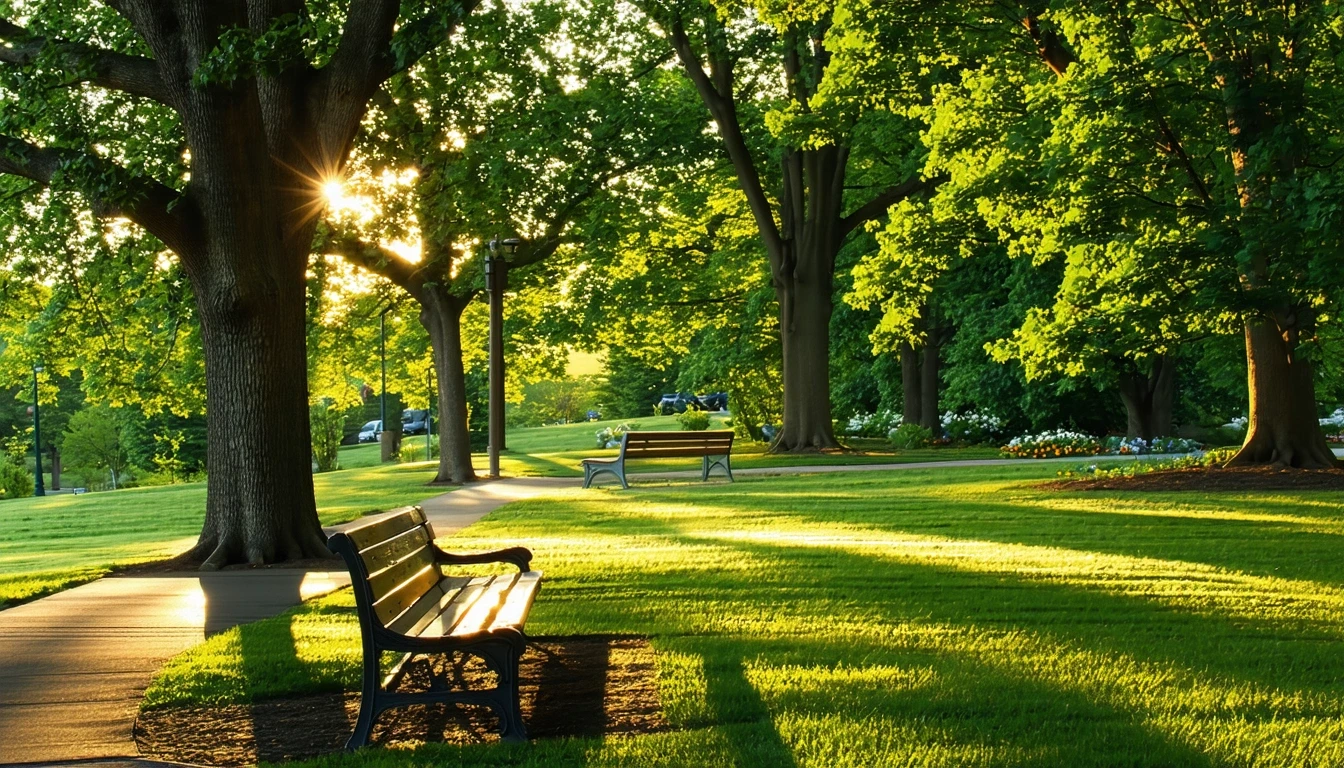Mclean, VA vs. Falls Church, VA: Cost of Living Comparison (2025)
When relocating to the Washington, DC metro area, prospective residents often find themselves comparing the charming suburbs of Mclean and Falls Church in Northern Virginia. While both offer a high quality of life with easy access to the nation’s capital, there are notable differences in cost of living that can sway the decision for families and young professionals alike.
Imagine the Johnsons, a family of four debating the move from their cramped DC apartment to a more spacious home in the suburbs. Mark, a government contractor, is drawn to the prestigious neighborhoods and top-rated schools of Mclean. However, his wife Emily, a nonprofit executive, favors the walkable streets and community feel of Falls Church. As they weigh the pros and cons, the cost of living emerges as a central factor in choosing where to plant roots in 2025.
In this article, we’ll take a deep dive into the key expenses that differentiate Mclean and Falls Church, from housing and utilities to groceries and taxes. By examining the numbers and lifestyle considerations, relocating readers can determine which of these desirable NoVA suburbs best aligns with their budget and priorities.

Housing Costs: Mclean’s Premium Prices vs. Falls Church’s Relative Affordability
Housing is often the biggest line item in a household’s budget, and the contrast between Mclean and Falls Church is significant. Mclean’s luxury reputation comes with a hefty price tag – the median home value soared to $1.3 million in 2025, reflecting the predominance of stately single-family homes on expansive lots. Renting is no bargain either, with a typical two-bedroom apartment commanding around $3,500 per month.
Falls Church, while not inexpensive by national standards, offers more budget-friendly options. The median home price hovers near $950,000, and renters can expect to pay roughly $2,800 monthly for a two-bedroom unit. The city’s diverse housing mix, from post-war bungalows to modern townhomes, provides accessible entry points for various income levels.
The table below compares common housing costs in Mclean and Falls Church:
| Housing Type | Mclean | Falls Church |
|---|---|---|
| Median Home Price | $1,300,000 | $950,000 |
| 2BR Apartment Rent | $3,500 | $2,800 |
| 3BR House Mortgage | $6,200 | $4,500 |
For the Johnsons, this price differential equates to substantial savings by choosing Falls Church. The lower mortgage could fund their children’s college accounts, while still providing access to quality schools and suburban amenities. However, Mclean’s prestige and larger lot sizes may justify the expense for high-earning professionals.
Ultimately, Falls Church takes the lead on housing affordability, offering more budget-friendly options and a wider variety of housing types compared to Mclean’s high-end market. Families and first-time homebuyers, in particular, may find their dollars stretch further in Falls Church.
Keeping the Lights On: Utility Costs in Mclean and Falls Church
While less dramatic than housing costs, utility expenses also vary between the two suburbs. Mclean residents typically pay more for electricity and natural gas, due in part to the larger average home size. A family in a 2,500-square-foot house might expect monthly energy bills around $250, while a similar household in Falls Church could pay closer to $200.
Seasonal fluctuations also impact utility costs differently. Mclean’s affluent neighborhoods feature many older, less energy-efficient homes that can drive up heating and cooling expenses. Falls Church’s more compact housing stock and newer construction tend to be more weathertight, leading to lower bills during the peak summer and winter months.
Both cities offer energy-saving programs and rebates to help residents manage costs. Dominion Energy, the primary utility provider, provides free home energy assessments and discounts on efficient appliances. However, with its smaller homes and more temperate utility usage, Falls Church has the advantage in this category.
Feeding the Family: Grocery and Food Costs
The cost of groceries and dining out is relatively comparable between Mclean and Falls Church, with a slight edge to Falls Church. A gallon of milk or a dozen eggs might cost $0.30-$0.50 more in Mclean, while a meal at a mid-range restaurant could be $5-$10 pricier.
Mclean does boast a wider selection of high-end grocery stores like Balducci’s and Whole Foods, which can inflate the bill for specialty items. However, budget-conscious shoppers can find wallet-friendly options at chains like Giant and Aldi, which have locations in both cities.
Dining out is a popular pastime in both suburbs, but Falls Church’s more diverse restaurant scene offers a range of price points. While Mclean has its share of lauded eateries, the city’s upscale reputation means even casual dining spots tend to charge a premium.
For a family of four, monthly food costs in Mclean could easily top $1,200, while the same household in Falls Church might spend closer to $1,000. Young professionals and couples may find the difference less noticeable, but for larger families, the savings in Falls Church can add up over time.

The Tax Man Cometh: Comparing the Tax Burden
Taxes are another important consideration when weighing the cost of living. Virginia’s statewide income and sales taxes apply equally to Mclean and Falls Church, but property taxes and local fees vary.
Mclean homeowners face a slightly higher property tax rate of $1.15 per $100 of assessed value, compared to $1.13 in Falls Church. For a median-priced home, that equates to an annual tax bill of nearly $15,000 in Mclean versus about $10,700 in Falls Church – a significant difference for budget-minded households.
Both cities assess additional taxes and fees for services like trash collection, water, and sewer. However, Falls Church’s more compact size allows for greater efficiency in service delivery, translating to lower costs passed on to residents. Mclean residents may also face higher HOA fees in some neighborhoods, further adding to the monthly burden.
Renters are not immune to the tax differential, as landlords often pass on a portion of property taxes through higher rents. In this category, Falls Church again comes out ahead, offering a lower overall tax burden for both homeowners and renters.
The Bottom Line: Mclean vs. Falls Church Living Costs in 2025
| Cost Category | Mclean | Falls Church |
|---|---|---|
| Housing (Mortgage/Rent) | $3,500 – $6,200 | $2,800 – $4,500 |
| Utilities | $250 | $200 |
| Groceries & Dining | $1,200 | $1,000 |
| Transportation | $150 | $100 |
| Taxes & Fees | $1,250 | $890 |
| Misc. Expenses | $500 | $500 |
| Estimated Monthly Total* | $6,850 – $9,550 | $5,490 – $7,190 |
*Estimates reflect 2025 costs for a mid-size household (2-bedroom apartment or 3-bedroom home) using published regional data and cost of living benchmarks. Actual expenses will vary with household size, lifestyle, and neighborhood. All income figures are expressed as gross monthly income (pre-tax).
When tallying up the various living costs, Falls Church emerges as the more affordable option, with potential savings of $1,300 or more per month compared to Mclean. For the Johnson family, that extra room in the budget could mean accelerated savings for a down payment, more frequent vacations, or reduced financial stress.
Of course, the raw numbers don’t tell the whole story. Mclean’s prestigious reputation, top-tier public schools, and luxurious amenities may justify the higher cost of living for some families. Professionals who value expansive homes and a tight-knit community may find Mclean worth the premium.
Lifestyle Factors to Consider
Beyond the hard costs, quality of life considerations can also sway the decision between Mclean and Falls Church. Commuters may prefer Mclean’s proximity to major employers like Capital One and Booz Allen Hamilton, while those who rely on public transit will appreciate Falls Church’s more extensive bus and metro options.
Falls Church’s walkable downtown and community events foster a small-town feel that appeals to young families and retirees alike. The city’s diverse population and eclectic dining scene add vibrancy, while abundant parks and trails provide ample green space. In fact, Falls Church boasts 12 acres of parkland per 1,000 residents, double the national average.
Mclean, while more sprawling and car-dependent, offers a serene suburban lifestyle with spacious lots and quiet streets. The city’s elite status is reinforced by high-end shopping at Tysons Galleria and world-class arts performances at the nearby Wolf Trap National Park for the Performing Arts. Golf enthusiasts will also find paradise in Mclean, with several top-rated courses like TPC Potomac to choose from.
These lifestyle factors can have indirect impacts on living costs. For example, Falls Church’s walkability and transit access may allow some households to downsize to one car, while Mclean’s larger homes come with higher utility and maintenance expenses. Considering the full picture of each city’s amenities and quality of life can help guide the financial calculus.
Frequently Asked Questions
Is Mclean more affordable than Falls Church in 2025?
Based on housing, utility, grocery, and tax costs, Falls Church is generally more affordable than Mclean in 2025. However, the difference may vary depending on individual lifestyle and housing choices.
How do property taxes compare between Mclean and Falls Church?
Mclean has a slightly higher property tax rate of $1.15 per $100 of assessed value, compared to $1.13 in Falls Church. For a median-priced home, this equates to about $4,300 more in annual property taxes in Mclean.
Are utility bills typically higher in Mclean or Falls Church?
Due to larger average home sizes and older construction, utility costs tend to be higher in Mclean than in Falls Church. A typical household might spend $50 more per month on energy bills in Mclean.
How much could a family of four save on monthly expenses by choosing Falls Church over Mclean in 2025?
Assuming a 3-bedroom home and typical expenses, a family of four could potentially save $1,300 or more per month by living in Falls Church instead of Mclean in 2025.
What is the average cost of living in Mclean compared to Falls Church for young professionals?
Young professionals can expect to spend about 20-25% more on living costs in Mclean compared to Falls Church, primarily due to higher rents and pricier dining and entertainment options. However, the difference may be less noticeable for those choosing smaller apartments or more budget-friendly lifestyles.
Making the Move: Mclean or Falls Church?
For the budget-conscious family like the Johnsons, Falls Church offers a compelling balance of affordability and amenities, with potential savings of over $15,000 per year compared to Mclean. The city’s strong sense of community, walkable neighborhoods, and convenient transit options make it an attractive choice for those seeking an urban-suburban hybrid.
However, Mclean’s prestigious reputation, top-ranked schools, and luxurious homes may be worth the premium for high-earning professionals who value space and status. The city’s elite amenities and proximity to major employers can offset the higher living costs for those with ample financial means.
Ultimately, the choice between Mclean and Falls Church depends on individual priorities and budgets. By carefully weighing the cost of living factors outlined in this guide, relocating families and professionals can make an informed decision on which of these desirable NoVA suburbs to call home in 2025 and beyond.
Interested in calculating your own [monthly budget for living in Mclean](/mclean-va/monthly-budget/)? Our comprehensive guide breaks down typical expenses and offers tips for managing costs in this sought-after DC suburb. Or, for a high-level view of the [cost of living in Mclean](/mclean-va/cost-overview/), check out our 2025 overview covering housing, utilities, transportation, and more.
Ready to make the move? [See our 2025 moving company picks](https://indexyard.com/best-moving-companies-guide/) for trusted providers that can help you transition to your new home in Mclean or Falls Church with ease.
